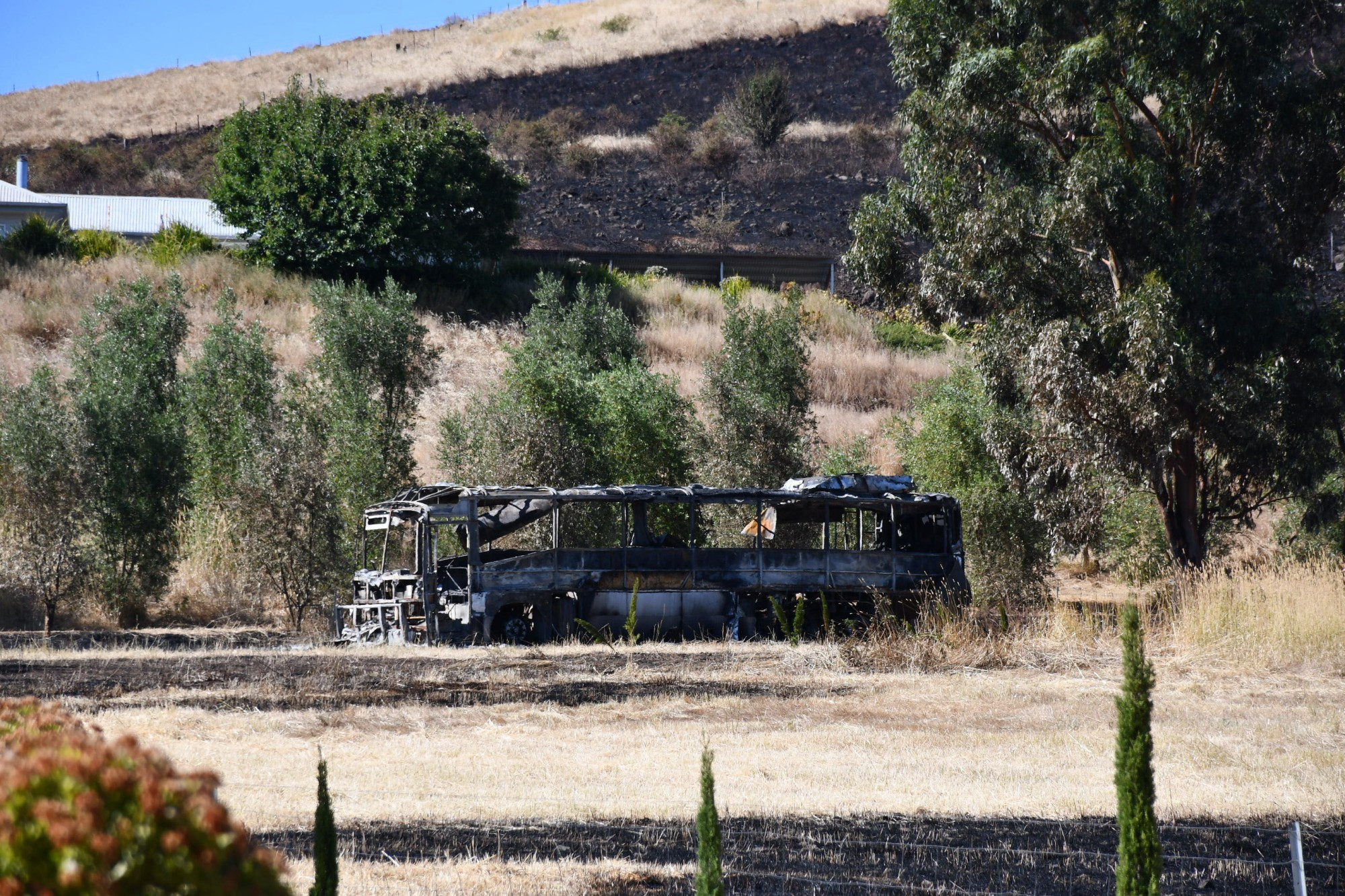General News
6 February, 2023
Good fortune and hard work saves homes and livestock in Mount Glasgow grassfire
A grassfire that threatened homes and burned through over 300 acres at Mount Glasgow on Saturday is a “harsh reminder” that fire is never far away, Talbot Fire Brigade Captain Ross Andrews has warned. The fire broke out at around 3 pm on...

A grassfire that threatened homes and burned through over 300 acres at Mount Glasgow on Saturday is a “harsh reminder” that fire is never far away, Talbot Fire Brigade Captain Ross Andrews has warned.
The fire broke out at around 3 pm on Saturday near McCallums Creek Road at Mount Glasgow, burning fast in different directions and coming within metres of several homes.
At 3.53 pm a Watch and Act alert was issued by VicEmergency, warning residents in Clunes, Dunach, Craigie and surrounds to ‘leave now’.
The fire burned through approximately 350 acres, pushed by a southerly wind however thanks to the fast response from firefighters, the threat level had been reduced as the fire was brought under control at around 5 pm.
“It was a serious fire. The fuel load is just off the scale. If it had been a 30 degree summer day with low humidity with that wind, who knows where it would’ve been stopped,” Captain Andrews said.
“The incident controller happened to be one of the first on scene and called in aircraft from Ballarat and Bendigo, and really stacked the resources which was a significant help.
“If that hadn’t been done, it could’ve been a lot worse. The fire could’ve been double the size, easily.
“We’d be talking about house losses, and not just two or three but a couple of dozen. It was heading towards a more populated rural area.”
The fire received a huge response from 20 brigades with units from Talbot, Carisbrook, Maryborough, Ascot, Baringhup, Bownvale, Burnbank, Campbelltown, Clunes, Creswick, Dunolly, Kingston, Miners Rest, Moolort, Mt Cameron, Newstead, Smeaton, Ullina, Waubra and Wendouree attending, alongside Forest Fire Management Victoria crews and air support.
Captain Andrews said the fire was challenging.
“The wind was certainly up there but the heat wasn’t — it was a very clean burn and fast moving fire. In some parts it was very difficult terrain, it virtually burnt up to the top of Mount Glasgow,” he said.
“We had quite a few structures under threat and the fire was fairly erratic, disappearing in different directions.
“All the crews did a terrific job pulling it up where they did, it’s a credit to them. I have to thank the local private units that came out and assisted, they’re worth their weight in gold.”
Captain Andrews said good fortune meant there were no major losses to stock or property, aside from a bus which couldn’t be saved.
“It literally burnt right up to a couple of houses and around a local shearing shed, but all were able to be saved,” he said.
“Unfortunately a bus was lost at one of the properties, it was an old coach the owners had stripped and were looking to re-purpose, sadly we couldn’t save it. It was that or the house.
“Apart from that, some fences and grass, we were very lucky there were no stock losses.
“One farmer was meant to have nearly 300 sheep on his block but the transport truck couldn’t get in because it was too wet, so they weren’t there which was an act of good fortune.
Another landholder took cattle out of the paddock where the fire was pulled up just the week before.”
It’s not the first time a major fire has broken out at Mount Glasgow — during the 2019 November Maryborough Energy Break-through a grassfire caused sig-nificant concern in the same location, with an emergency warning issued.
Weather conditions were more extreme during that fire, with the heat and wind requiring 40 vehicles and air support — although it covered less ground with around 50 hectares burning.
“That fire was in nearly the exact same area but it burnt in a different direction and was smaller. Unfortunately there’s property here that’s been affected twice in three or four years,” Captain Andrews said.
“This recent fire does remind me of a fire we had in 2001/2002 down at McCallums Creek. That day as well was only into the very late teens, it wasn’t even touching 20° but that burnt around 800 hectares at the time.
“The way it covered a large area on a cooler day reminds me of Saturday’s fire.”
Local CFA brigades had warned at the start of summer that high rainfall would lead to high fuel loads — particularly in grass and scrub — and that warning appears to have come to fruition, Captain Andrews said.
“It’s a very harsh reminder that fire’s never far away, and it’s never too late to be prepared,” he said.
“It’s not hard to prepare your valuables to take if you’re evacuating from a fire.”
The fire ground will be patrolled by Talbot CFA volunteers for hot spots and flare ups in conjunction with Forest Fire Management throughout the week as temperatures increase.
The cause of the fire is currently under investigation by police.
